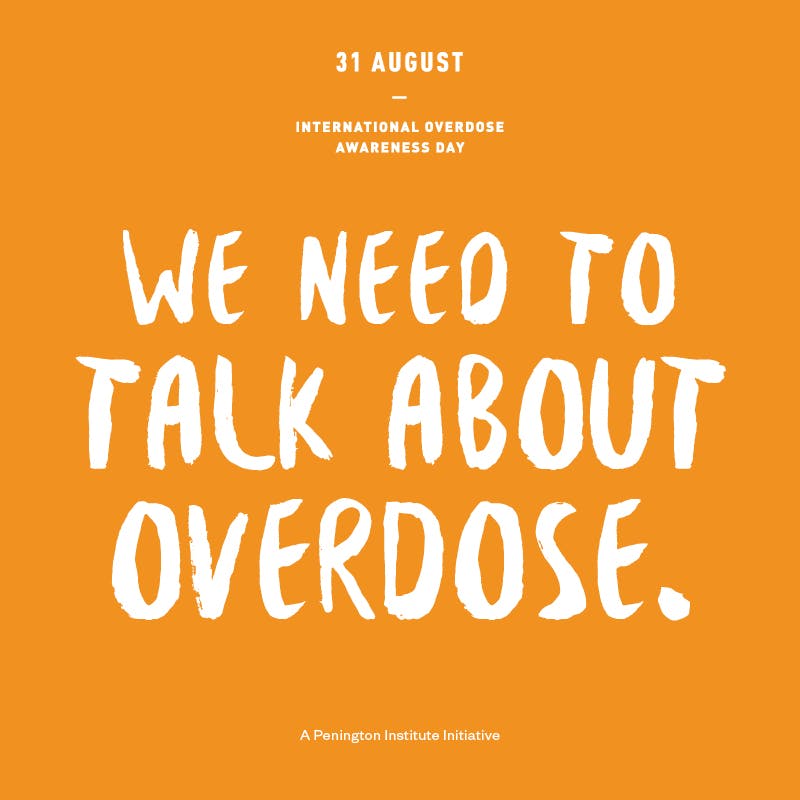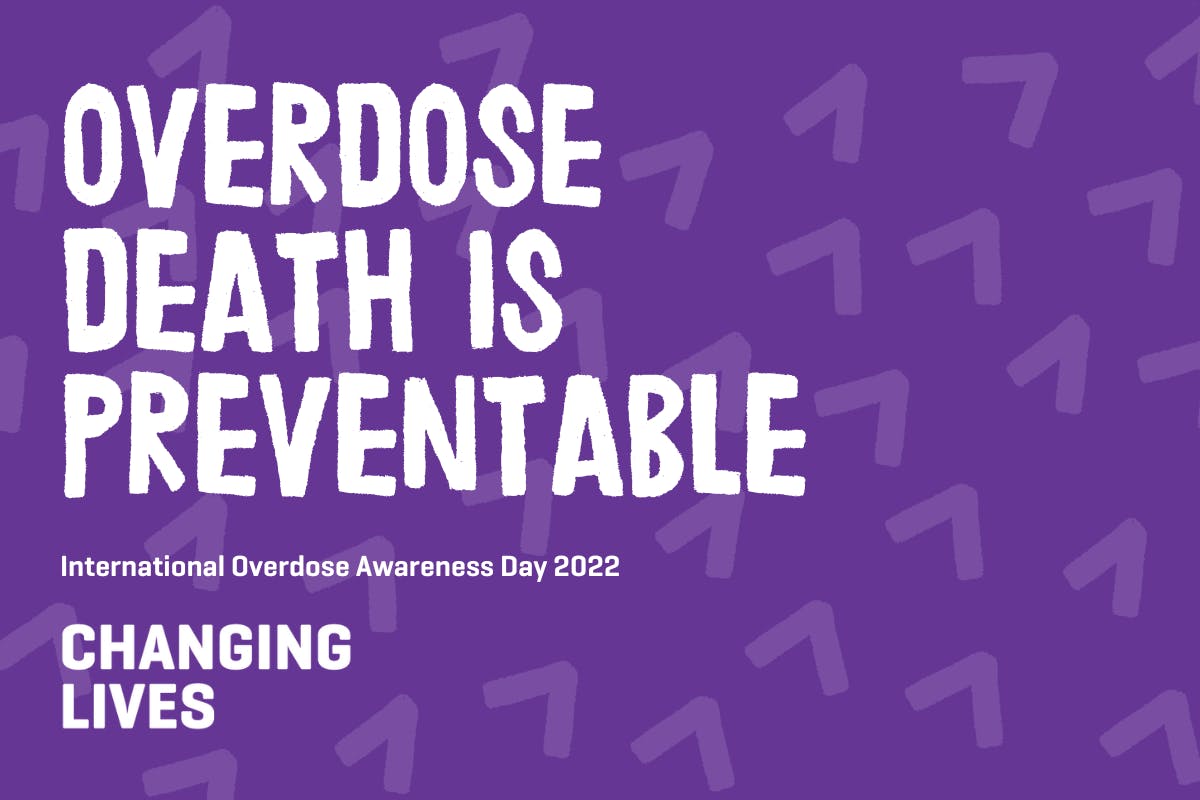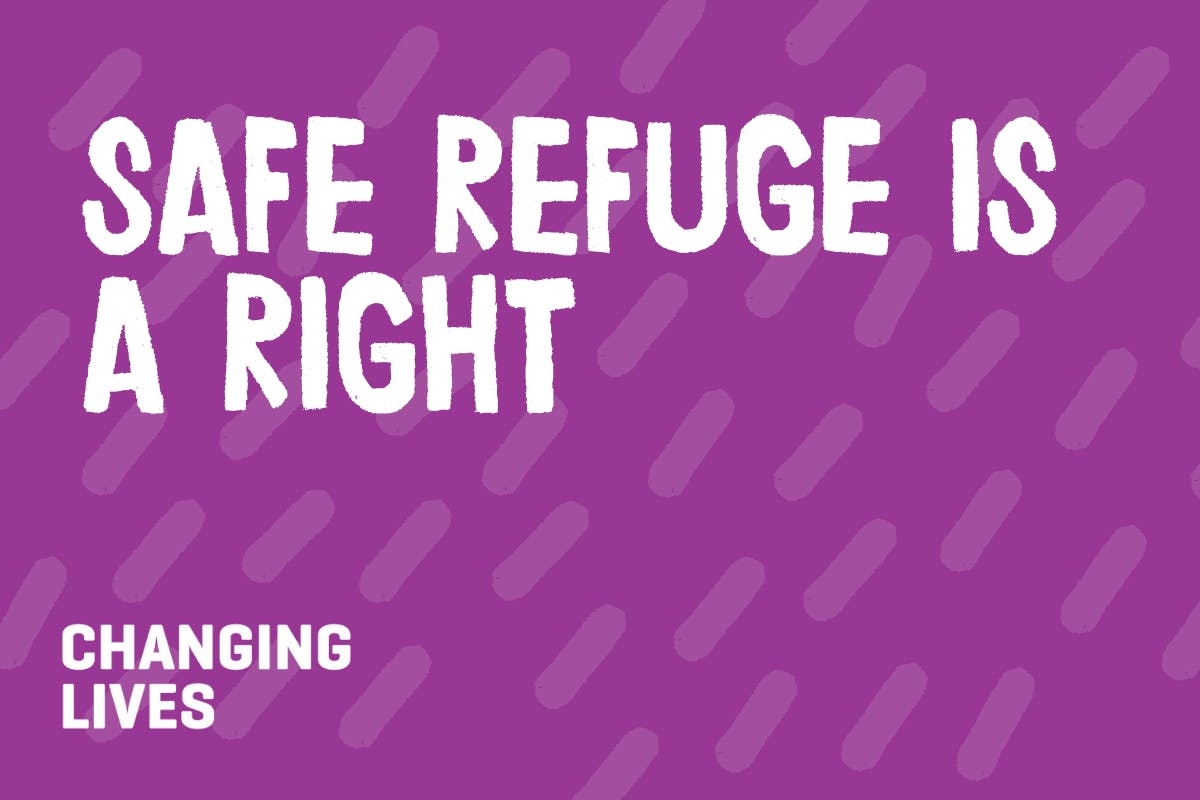Today marks International Overdose Awareness Day, where we remember the lives lost prematurely and grieve with the families of those who have lost loved ones due to drug overdose.
Between 2019 and 2022, deaths related to drug overdose made up 30% of deaths amongst people who access our services at Changing Lives. In human terms, this means 60 people – 22 women and 38 men – who should still be alive today.
While many people who access our services go on to live independent and flourishing lives, sadly some die as a consequence of the challenges they are facing. Since 2019, Changing Lives has seen a decrease in the number of deaths related to drug overdose amongst men accessing our services, but an alarming increase amongst women. Despite the overall number of women accessing our services decreasing between 2019 and 2022, the number of women dying due to drug overdose has been increasing every year. In the last four months (April – July 2022) we have witnessed the highest number of deaths related to drug overdose amongst women so far, accounting for 7 out of 9 deaths.
This is an alarming and deeply saddening trend. We are currently exploring further to understand what is driving this increase, but already we know that many women who access our services come to us with a history of trauma and repeat victimisation. Furthermore, they are likely to have a dual diagnosis of addiction and mental ill health, and often experience multiple unmet needs which require a holistic approach to support. Addiction is often both a symptom of the trauma that they have experienced, and a coping mechanism when the suffering gets too much.
Many of these women are seen by public services as too ‘complex’ or ‘hard to reach’. Women who are deeply traumatised and subsequently caught up in addiction are blamed for lack of engagement, rather than supported to access help in a way that works for them.
When public services fail to protect women from abuse and exploitation, and do not appropriately address trauma when it occurs, the results are devastating. We know that many women’s experiences of trauma have increased in recent years. During the first four months of the pandemic we saw a 179% increase in the number of women who access our services in the North East disclosing that they have experienced sexual violence. We are also seeing increasing levels of domestic abuse and sexual exploitation associated with the rising cost of living.
We know that women often face specific barriers to accessing addiction and recovery support, which is particularly concerning as many drug-related deaths occur amongst people who are not engaged in treatment and recovery. Many women report being anxious about running into drug dealers or people who have abused or exploited them. We also know they are unlikely to feel comfortable disclosing and addressing experiences of domestic and/or sexual abuse in mixed sex environments and treatment groups. Mothers face additional stigma and are often reluctant to access support due to fears their children may be removed. Some may also struggle to attend sessions if the service does not include childcare facilities.
While we mourn for those who have lost their lives, we can still act to reverse this trend and give people experiencing addiction and trauma the opportunity to move on into a flourishing life. We would like to see a health-led approach to addiction that seeks to address the underlying trauma at the root of addiction rather than merely treating the symptoms and criminalising the behaviour. We would like to see increased commissioning of women-only spaces that address the barriers that disproportionately affect women such as lack of childcare or fear of abusers. And we would like to see both services and systems, from health to housing to justice, adopting approaches that are genuinely trauma-informed and help women move on from what has happened to them.
We must act now – people’s lives depend on it.






